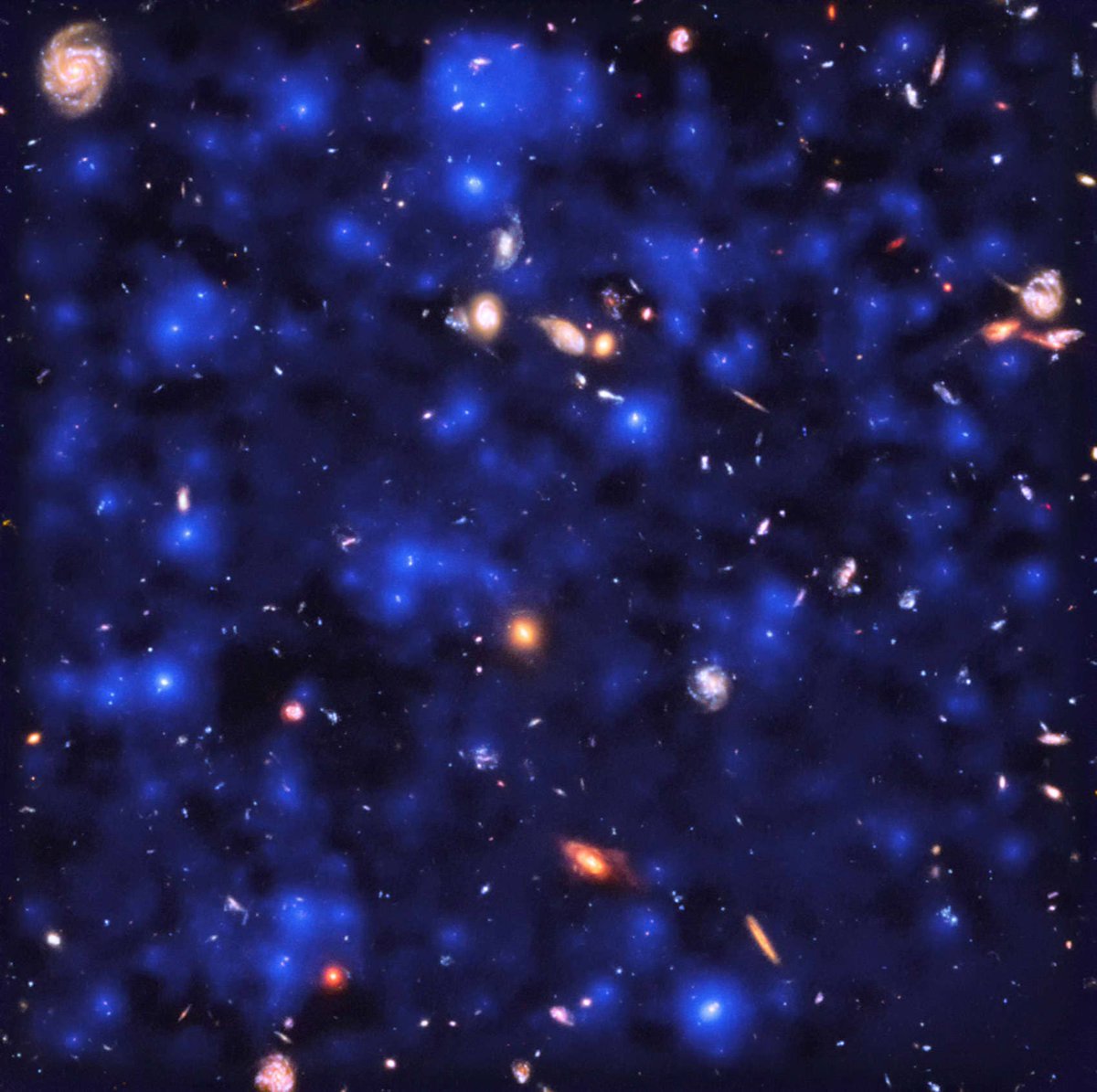How old is the Universe?
13.77 ± 0.039 billion years.
Well, according to new data looking at the oldest light in the cosmos.
But is that right? Yeah, we've got ourselves a Universe-sized problem here. https://www.syfy.com/syfywire/the-universe-is-1377-billion-years-old-probably-maybe-a-little-less-were-not-sure
13.77 ± 0.039 billion years.
Well, according to new data looking at the oldest light in the cosmos.
But is that right? Yeah, we've got ourselves a Universe-sized problem here. https://www.syfy.com/syfywire/the-universe-is-1377-billion-years-old-probably-maybe-a-little-less-were-not-sure
2/ The issues is, when we look at this super old light — from when the cosmos was 380,000 years old! — we get one number. But when we look at things like really distant galaxies, light from when the Universe was already a billion or more years old, we get a *different* number.
3/ The two numbers are close, within a couple of hundred million years of each other. It's not like anyone is saying the Universe is 6,000 years old, which would be pretty silly!
But it's still an issue. They should agree better, but they don't. It's not clear why.
But it's still an issue. They should agree better, but they don't. It's not clear why.
4/ It may be that the Universe's expansion rate has changed over time (we get the age in part from how fast it grows), between when it was about a million and a billion years old. Or it may be that there's some physics we still don't understand just yet.
5/ The good news is that our measurements are now accurate enough to reveal this issue! We can use so many different methods to figure out how old the Universe is that we start to find differences in what the methods themselves see. That's astonishing.
6/ And mind you, take a second to think about what we're doing here: We're figuring out how old the ENTIRE UNIVERSE is just by looking at light raining down on Earth from it. Most of which has traveled for BILLION OF YEARS.
This is incredible stuff.
This is incredible stuff.
7/ My point is that yes, the two groups of methods don't agree, so we have a problem here. But it's not a fatal one. In fact, it's a vital one (in the sense of vital = life): It's showing us the Universe is even more complicated than we thought. And we think it's *complicated*.
8/8 The more carefully we look deep into the Universe, the more subtle effects we find. We start by making broad conclusions, then add the finer details to them as we learn more.
And oh my, there's a lot more to learn. https://www.syfy.com/syfywire/the-universe-is-1377-billion-years-old-probably-maybe-a-little-less-were-not-sure
And oh my, there's a lot more to learn. https://www.syfy.com/syfywire/the-universe-is-1377-billion-years-old-probably-maybe-a-little-less-were-not-sure

 Read on Twitter
Read on Twitter


